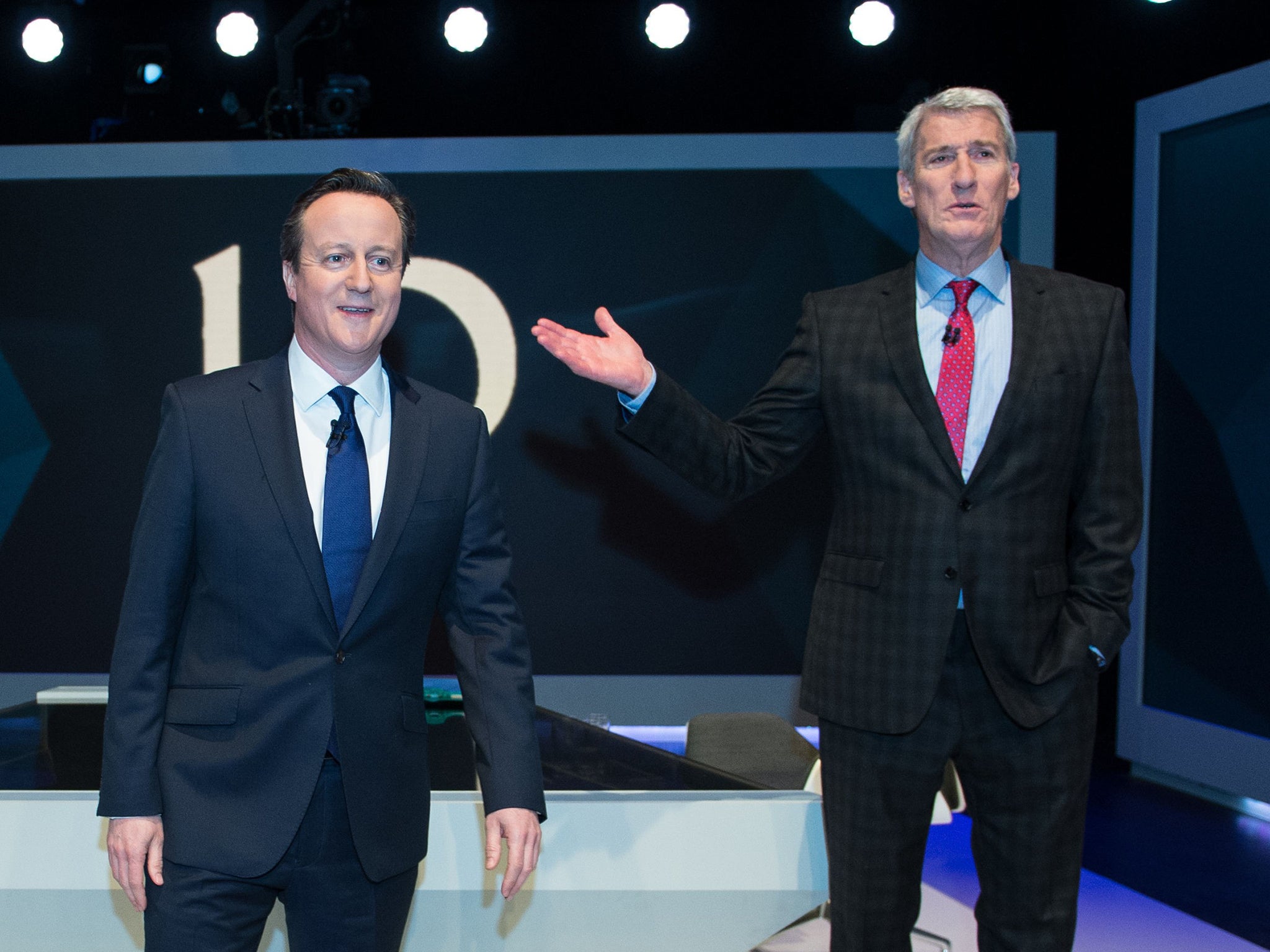The Independent's journalism is supported by our readers. When you purchase through links on our site, we may earn commission.
Something wrong with the Conservative Party’s game plan
The Tories assumed that exposing Ed Miliband to the public would put voters off


There is a problem with the Conservatives’ game plan for this election. They tried to keep the Prime Minister out of TV debates, and they have more or less succeeded. There will be only one, on Thursday, with seven party leaders. So convoluted are the rules that I am told ITV intends to get through only four questions in two hours.
I suspect the audience will be somewhat lower than the 9.4 million who watched the first of the three-way debates at the last election. So the risks for David Cameron have been minimised, although as the incumbent with a record to defend he will still be besieged by outsiders with easy answers and nothing to lose.
But the plan assumes that whatever the parties do instead of the debates will work in Cameron’s favour. Last week we put that theory to the test. “The Battle for No 10” was a serial interview programme on Thursday. I thought Cameron looked uncomfortable and was weak on questions of substance, whereas Ed Miliband was well prepared and good at disrupting Jeremy Paxman’s line of questioning, although his policies were superficial and his “Hell, yes, I’m tough enough” was ridiculous.
It doesn’t matter what I think, of course. What matters is what most of my fellow citizens think. Fortunately, two pollsters interviewed people who had watched it. ICM’s instant verdict attracted the most attention: 54 per cent said Cameron had “won the contest” and 46 per cent said Miliband.
This was quite satisfying, because it suggested that the Westminster bubble had got it wrong by calling it for Miliband on Twitter. But actually public opinion was more complicated. A YouGov poll divided only 51 per cent to 49 per cent in Cameron’s favour, but because it wasn’t published until the following morning gained little attention. And the ICM poll contained some important findings. It found that 8 per cent of people had changed their minds about how they were intending to vote as a result of watching the programme. The Conservative vote went up by one percentage point, but the Labour vote went up by two points.
So although more people overall thought that Cameron did better than Miliband, floating voters were more impressed by the Labour leader, which is what really matters. The shift was not huge, and the numbers who watched the programme, 3.2 million, were only a third of those tuning in for the TV debates last time. But the point about not doing the debates is that doing something else instead, such as a serial interview programme, was supposed to be better for Cameron. Perhaps last week’s show was better for him than doing a debate, but if the effect is to reinforce the Labour vote, something is not going according to plan.

________
It is not as if the Conservatives are sitting on an opinion-poll lead and trying to avoid doing anything to fritter it away. Last week, a convocation of academic forecasters assembled in Westminster to exchange election predictions. John Curtice, Strathclyde, predicted that Philip Cowley, Nottingham, would be the winner because a properly hung parliament would have him, the leading expert on MPs’ voting behaviour, on Newsnight every night. The average of their election predictions, though, was that Labour would win 283 seats and the Conservatives 279. Only two of the 12 forecasts put the Tories plus Lib Dems on more than the 314 they need for Cameron to stay on as Prime Minister with the support of the Northern Irish DUP.
The Conservative game plan assumed that exposing Miliband to the British public in an election campaign would put the voters off – except in the one situation of TV debates, in which he might exceed the low expectations of him and come out the winner. But last week Miliband was exposed to the British public and the Labour vote went up. Not everyone was impressed. Deborah Mattinson, who used to do focus groups for Gordon Brown until she told him too many things that he didn’t want to hear, spoke to a woman who said: “Miliband’s words sound like a fairy tale. Easier said than done.” But Keith, a former Lib Dem from Oldham, told YouGov: “I always thought him to be evasive but tonight he is being very clear and direct in his answers.”
Perhaps this is reading too much into responses to one programme. But it is not as if Cameron has some sure-fire device up his sleeve to move the last chunk of voters that he still needs to stay in No 10. The Tories have a lot of money – although that could be double edged – and a hunch that the economy will underpin a “don’t let Labour ruin it” message. But is that enough?
Watching Cameron up against Paxman, I wondered how much he really wanted to win. It may have been that he wanted to cut against his image as arrogant and slick, but he appeared diffident and as if he would rather be somewhere else. This election may come down to the character of the essay-crisis Prime Minister himself.
Join our commenting forum
Join thought-provoking conversations, follow other Independent readers and see their replies
Comments
Bookmark popover
Removed from bookmarks